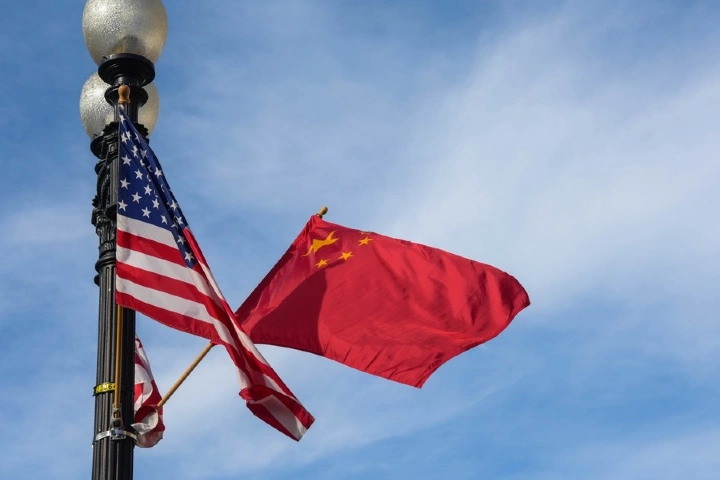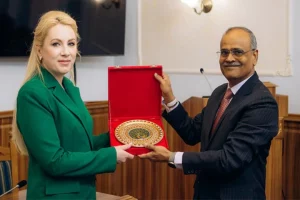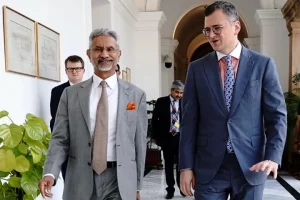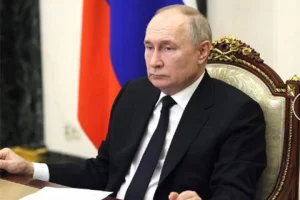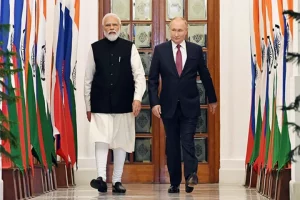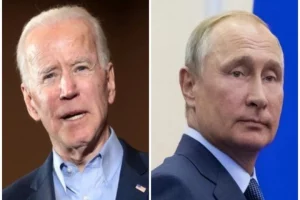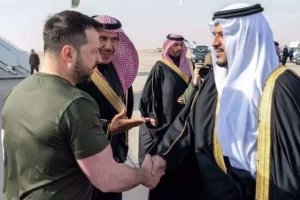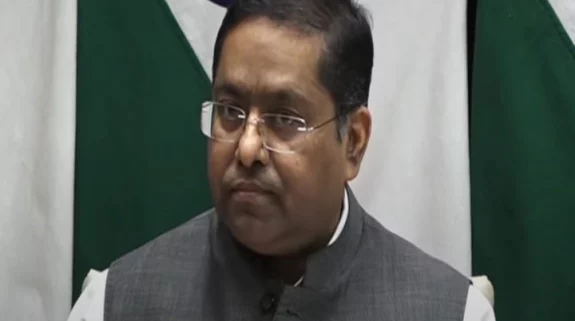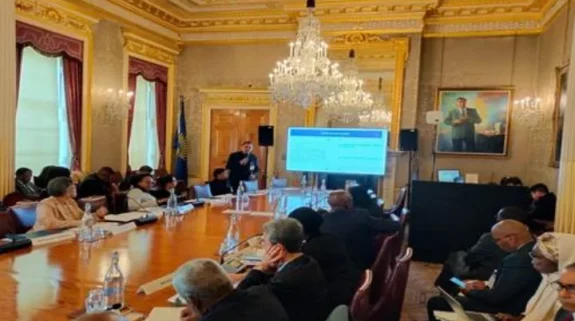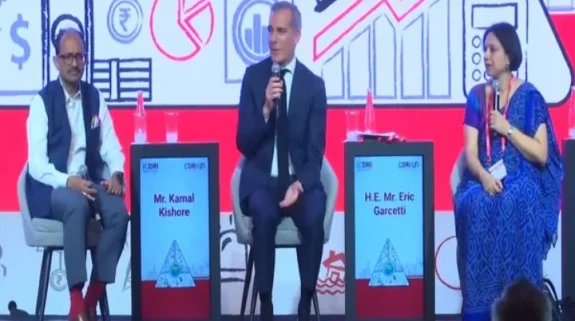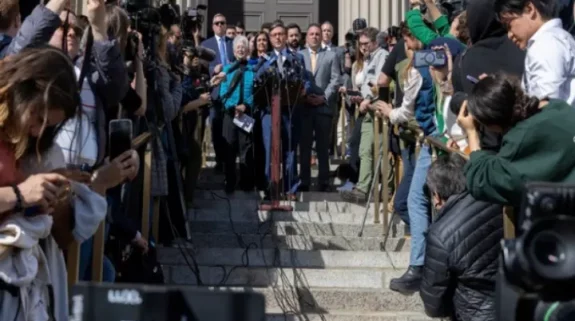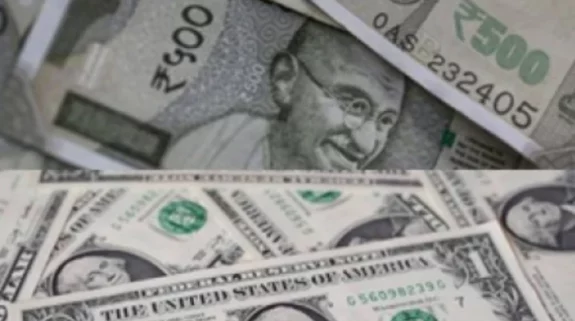As the Russian invasion of Ukraine completed a year, what is the shape of the great power politics? Four trends are clearly discernible.
First, the consolidation of the politico-military unity of the Western alliance. With the humiliating retreat from Afghanistan and the persistent domestic political crisis, triggered by the sharply partisan politics and polarising personalities, America was seen as a great power in a terminal decline. After the Russian invasion of Ukraine, the West has rallied together, despite the hesitations of Germany, behind America and Britain. The North Atlantic Treaty Organization (NATO), described as the cornerstone of the Western security system, has not only found a new purpose but has also expanded the membership by including Finland and Sweden. The American alliances in Asia are also being strengthened as a result of the reverberations of the Ukraine war in the Indo-Pacific.
Vladimir Putin meets with China’s top diplomat Wang Yi at the Kremlin.
🇨🇳🇷🇺#China #Russia #stockmarketcrash #USA pic.twitter.com/2CSctTFsbK— SANTINO (@MichaelSCollura) February 22, 2023
The second trend is the durability of strong Russia-China partnership. Before the war began in the last week of February 2022, Russia and China unveiled a ‘no limits’ partnership. It was seen as a triumph of Eurasian autocracies who were smartly expanding their areas of collaboration and were successfully challenging the dysfunctional West. Through the war, China has remained firm in its embrace of Russia, short of supplying lethal weapons. There have been times when it felt like China was rethinking its position. However, the two Eurasian powers have not ditched each other. Interestingly, the Ukraine war has made Russia even more dependent on China as it faces stringent western sanctions and isolation in Europe. On its part, Beijing has not condemned the invasion.
The third trend is the weakening of Russia as a military-industrial power and its impact on the great power politics. The continued, in fact growing, Western military support to Ukraine, the inability of the Russian army to achieve the decisive battlefield victory (whichever way it is defined) and the Ukrainian resilience has changed the global perceptions as well as strategic realities on the ground. It has also influenced the great power politics as it is being played out between America, Russia, and China.
Russia is now seen as a weakened great power that will take years, if not decades, to recover from this debacle. It is riddled with some of the toughest sanctions and its access to advanced Western technology is cut off. Traditional spheres of Russian influence like Central Asia and Caucasus are diversifying their strategic partners and are seeking ways to balance overwhelming Russian presence. These states are doing it because they realize that Moscow is in a delicate situation and cannot impose costs beyond a point. Russian overtures in Africa, especially in the West and Central Africa, may seem like a promising new area for growing Russian influence. However, regimes that embrace Russia are doing it to balance France and the West. Therefore, the durability of these regimes remaining pro-Russian remains in question.
Finally, the great power politics as it is evolving in the context of the Ukraine war is being watched carefully in the Indo-Pacific. America’s friends and adversaries are drawing lessons not just on the question of military strategy but also about strategic trust and dependability. Many are loath to choose between Russia and America and would like to continue their relationship with Russia despite the American pressure. Countries like India depend on Russia for weapons and need Moscow for a variety of reasons. Therefore, despite the constant Western pressure, India has continued to purchase and increase the import of Russian oil.
The evolving trends will continue to influence not just the great power politics between America, China and Russia but also reshape the global and regional strategic dynamics.
(Sankalp Gurjar is an Assistant Professor at the Department of Geopolitics and International Relations, Manipal Academy of Higher Education, Udupi, India. He is the author of ‘The Superpowers’ Playground:Djibouti and Geopolitics in the Indo-Pacific in the 21st Century‘.)
Also read: Will the Russia-Ukraine war trigger mass hunger on a global scale?






